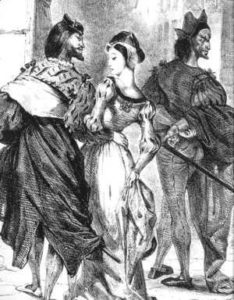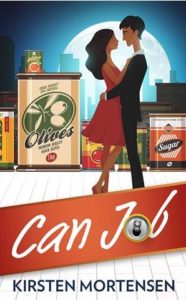You can’t market without data.
Well, okay, you can. But you’re shooting blind. And if you’re spending money, you’re throwing it away.
There’s not a professional marketer in the world — and by professional marketer, I mean someone with education and experience in marketing, who has been hired by a bona fide company to run its marketing programs — who would dream of spending marketing budget without first validating a whole slew of assumptions.
Another word for it is metrics.
Hang out on any marketing forum for any period of time, and the conversation will turn to metrics.
When social media first became a “thing,” the marketers became obsessed with metrics. They’d ask each other all kinds of really hard questions.
- Have you tested Facebook? Twitter? YouTube? That other social-media-platform-of-the-day?
- What were your results? How many visitors did you get? How many clicks per visit. How many conversions per click?
- What was your cost per click?
- What was your cost per conversion?
Dear fellow authors: have you ever once heard any indie book marketing company talk about ANY of those things?
Bet you a steak dinner you haven’t.
Because those kinds of questions poke holes in most of the author marketing “strategies” out there. Holes big enough to heave a trad pubbed book through.
What Indie Books Are Up Against
You can’t find a solution unless you understand the problem.
So pull up a chair, because I’m about to lend you my brain so that, together, we can understand a bit more about the challenges we face when we decide we’re going to “market” our indie titles.
The way I’m going to do it is through a little thought experiment.
Put on your pretend business person hat. Pretend you were going to found a new business which would be based on an ideal product, and you were going to launch it in an ideal marketplace.
I’ll go into this in more detail in my book, Getting to the Truth About Indie Author Marketing (click for details) but here’s the gist. Here are a few characteristics that define an ideal product in an ideal market:
- The product would have an enormous potential market.
- It would have little-to-no competition.
- Prospective customers would need the product. Or if they didn’t need it (as in, they die without it, like food) they want it so badly it hurts.
- The perceived value of the product is very high.
- The cost of producing the product is very low, relative to the price you can set for it.
Now comes the painful part.
(I’ll wait while you find the Kleenex …)
How do indie books compare to that marvelous ideal?
Answer: they don’t.
The only possible exception is the first bullet — market size — and that comes with a few caveats.
If you’re writing genre, for example, you may be creating a product with a large potential market. Sources day that the market for romance novels is around 29 million readers, for instance.
But if you’re not, your potential market is smaller — potentially much, much smaller.
And market size hardly matters anyway, because of the other factors we’ve listed.
Competition? Hey, you know how flooded the market is. Amazon carries over 30 million book titles, guys. That’s not even a flooded market. That’s darn near a saturated market.
So what about bullet #2. Do prospective customers need books? Guess what. They don’t. They might want them — and there’s a segment of the market that wants them badly — but nobody’s gonna t die tomorrow if he/she doesn’t get his/her hands on a new book.
Perceived value? Tell you what: if the perceived value of books was high, people wouldn’t be giving them away. They wouldn’t be pricing full-length novels at 99 cents.
Which leaves us cost. I’m having a lot of fun with cost in my book! But the bottom line (har har) is that you have to look at cost in terms of cost per unit sale.
And here’s the cold truth, my fellow writer: most indie authors aren’t going to sell more than a few dozen copies of their books.
Yeah, I know, I know, e-books are forever, your title might take off someday, and so-and-so sold zillions of copies, didn’t he/she? (Don’t worry, we’ll come back to that last claim early and often in future blog posts!)
But you’re investing your time and money today.
You’re paying your bills today.
No professional marketer in his right mind would ever dare turn to his boss and say, “I know, my marketing program didn’t result in any sales this year. But not to worry! I’m sure you’ll recoup you costs sometime in the next coupla decades.”
So suppose you churn books out at lightning speed, and keep your costs to almost negligible levels.
You’ve got to clear at least $5000 per title to break even.
At least.
(I will show the math on that in a future post.)
So plug that number into your calculator, along with how you’ll price your book and your expected royalty cut. And figure out how many copies you’ll need to sell.
1500?
2500?
5000?
I’m hunting down numbers as I research my book. Numbers. And one of the numbers I’m researching is how many copies/title the average indie author sells.
Not the big guys. Not the Hugh Howies and the Amanda Hockings and the JA Konraths.
The no-names.
I have yet to find any source that puts that number at higher than a couple hundred copies.
Got that?
On average, indie authors can only expect to sell a couple hundred copies of any given book.
Have you soaked your Kleenex yet?
Look, I have a huge problem, here, and I know it.
Nobody wants to buy a book that’s a total downer.
Hunt around on Amazon for titles on how to market your indie book. You’ll find a happy place, I promise. This works! That works! Five simple steps! Seven simple steps! All you have to do is xyz!
It’s a fantasy.
And I have nothing against fantasy. In fact, I adore dreams, fantasies, imagination. I write novels because there’s almost nothing in the world that makes me feel better than conjuring a fantasy and committing it to a Word file and then sharing it with other people.
So if you want to buy into some fantasy about how easy it is to market indie books, I say: more power to you.
But speaking for myself, I’m a professional writer. I’m in this as a career, not a hobby. I’m into this indie publishing thing as a business.
Not a get-rich-quick scheme.
A business.
So I want a clear-eyed view of what I’m up against.
Won’t you join me?
Everyone who subscribes to my Getting to the Truth email list before midnight, E.S.T., on Sunday February 15 will be entered in a drawing to win a free e-copy of the book.
Subscribers will receive brief, periodic updates on the book, including links to blog posts like this one that share information I’ve dug up about indie marketing. These will be hard-hitting, extremely useful posts that you do not want to miss.
I will not share your contact information with anyone else, and you can unsubscribe at any time.
Subscribe by using the form below, and please pass along this link to your indie author friends so they can participate as well.
Thanks for your interest. Thank you for your support.




